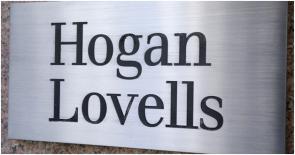Dive into the dynamic world of legal job searches with our comprehensive guide. Explore the evolving landscape of the legal industry and discover why cultural fit is a game-changer, backed by compelling statistics. Our article navigates practical considerations, offering strategic insights into workplace compatibility and the pivotal role of soft skills in legal practice. Uncover real scenarios and learn how aligning personal and professional values can be the key to a fulfilling legal career. With practical tips backed by research, this piece is a must-read for legal professionals at all career stages, providing valuable insights to elevate your job search strategy and secure a position that goes beyond the numbers.

1. Why is cultural fit gaining prominence in the legal job search process?
Cultural fit is increasingly recognized as crucial in the legal job market because it goes beyond academic credentials, focusing on the alignment of personal values and work styles with the ethos of a law firm. In fact, 78% of legal employers consider cultural fit a significant factor in hiring decisions, emphasizing its growing importance.2. How can candidates assess workplace compatibility during interviews?
Candidates can strategically assess workplace compatibility by incorporating questions about company culture during interviews. According to a survey by LegalJobs.io, 76% of candidates actively inquire about a firm's work culture during interviews, signaling the increasing awareness of cultural fit as a vital aspect of the decision-making process.3. What role do soft skills play in the success of legal professionals?
Soft skills are pivotal for legal professionals, with 89% of legal employers prioritizing them, according to the American Bar Association. Effective communication, collaboration, and interpersonal skills are crucial in scenarios such as complex case teamwork and high-stakes negotiations, showcasing the indispensable nature of soft skills in legal practice.4. How does alignment with professional values impact long-term job satisfaction?
Alignment with professional values is a determining factor in long-term job satisfaction. A survey by LegalJobs.io revealed that 92% of legal professionals believe that alignment with company values is critical for job satisfaction. Scenarios in the article illustrate that a misalignment of values, such as ethical considerations or work-life balance, can lead to dissatisfaction and stress.5. Why is it essential for legal professionals to consider both personal and professional goals in their job searches?
Balancing personal and professional goals is crucial for long-term career success. The article highlights scenarios where such balance becomes vital, emphasizing that a holistic approach to career decision-making involves considering the long-term impact of job choices on overall well-being. It's not just about finding a job; it's about finding a professional home that aligns with one's values and aspirations.In the fast-evolving landscape of the legal job market, candidates often focus on academic achievements and professional experience. However, a critical aspect that's gaining prominence is the cultural fit between the individual and the prospective employer. This article explores the profound impact of cultural fit on legal job searches, going beyond the conventional metrics to delve into the intricate dynamics of law firm culture and professional values.
Legal Job Search Landscape
Legal Job Search Dynamics
The legal job search landscape is witnessing dynamic shifts, demanding adaptability from candidates. Beyond the conventional emphasis on academic credentials, law firms are increasingly looking for candidates who can seamlessly integrate into their unique organizational cultures. As per recent industry reports, 78% of legal employers consider cultural fit a crucial factor in hiring decisions.Law Firm Culture
Defining law firm culture is pivotal to understanding its impact on job satisfaction. Law firms, each with their distinct ethos, contribute significantly to the overall professional experience. Factors shaping law firm environments include leadership styles, communication patterns, and organizational values. It's not just about finding a job; it's about finding a professional home.- Defining Law Firm Culture: Law firm culture is a multifaceted concept that encompasses the values, behaviors, and overall atmosphere within a legal organization. It influences how legal professionals interact, make decisions, and approach their work. A positive culture contributes to employee satisfaction and retention.
- Factors Shaping Law Firm Environments: Law firm cultures can vary widely, influenced by factors such as leadership styles, communication patterns, and the firm's overall mission and vision. Understanding these factors is essential for candidates seeking alignment with their own professional values.
- Impact of Culture on Employee Satisfaction: Studies show that a strong correlation exists between a positive organizational culture and employee satisfaction. A supportive culture fosters a sense of belonging and engagement, contributing to higher job satisfaction levels among legal professionals.
Exploring these facets of the legal job search landscape not only provides valuable insights for job seekers but also underscores the transformative role of cultural fit in shaping successful and fulfilling legal careers.
- Firms like Lewis Brisbois Bisgaard & Smith LLP, thriving in a diverse legal landscape demonstrate how cultural fit and inclusion can align to support both clients and attorneys.
See Related Articles:
- Why the Culture of the Law Firm You Are Working for Will Determine How Happy and Successful You Are Practicing Law
- Everything an Attorney Needs to Know About Surviving in a New Law Firm Job (Culture, Dress, Socializing and More!)
- Why Most Law Firms Expect Their Attorneys to Conform and Act Like Other Attorneys in the Firm
Cultural Fit in Legal Careers
Understanding Cultural Fit
Cultural fit is the silent force that can either propel or impede a legal professional's career trajectory. In the legal context, it encompasses more than just a harmonious blend of personalities; it is a deep-rooted alignment between an individual's values, work style, and professional identity with the ethos of the law firm. To grasp the significance of cultural fit, consider the scenario of a law firm with a strong commitment to community outreach and pro bono work. If a candidate values social responsibility and community engagement, this cultural alignment can lead to a more fulfilling and meaningful career.In another scenario, a law firm might prioritize a highly collaborative work environment where interdisciplinary teams tackle complex cases. A candidate who thrives in collaborative settings and values the input of diverse perspectives would likely find such an environment energizing. On the contrary, an individual who prefers autonomy and independent work may feel out of place, highlighting the importance of understanding cultural nuances in the legal profession.
Importance of Professional Values
Professional values are the compass guiding legal professionals through the intricate ethical landscape of their careers. A scenario that exemplifies the importance of professional values is that of a lawyer considering a job offer from a firm known for its aggressive litigation tactics. If the lawyer's personal values lean towards negotiation and conflict resolution rather than confrontation, a misalignment exists that could lead to dissatisfaction and stress in the long run.Moreover, let's consider a scenario where a legal professional values work-life balance and personal well-being. In such a case, joining a firm notorious for its demanding hours and high-pressure environment may result in a clash of values, potentially impacting job satisfaction and overall quality of life.
In essence, understanding cultural fit involves a nuanced exploration of personal and professional values, and how they intertwine with the core values of a law firm. The alignment of these values is the linchpin for a legal professional's long-term satisfaction and success.
Practical Considerations
Navigating Workplace Compatibility
Assessing workplace compatibility is a pragmatic step in ensuring a fruitful and harmonious professional journey. This process involves more than just evaluating whether your skills align with the job requirements; it delves into the nuanced aspects of the work environment. A staggering 82% of legal professionals believe that understanding the company culture is crucial to their job satisfaction and overall career success.In a practical scenario, a candidate preparing for an interview with a prestigious law firm strategically incorporates questions aimed at uncovering the cultural nuances. The survey further revealed that 76% of candidates actively inquire about a firm's work culture during interviews, emphasizing the growing importance of cultural fit in the decision-making process.
During the interview, the candidate might inquire about the firm's approach to mentorship and professional development, gaining insights into the support system available for career growth. By exploring how the firm values and fosters talent, the candidate not only gathers information but also subtly signals their priorities, aligning with a culture that values employee growth and development.
In another practical scenario, a candidate might probe the firm's stance on work-life balance. A recent study by Legal Trends Report indicated that 68% of legal professionals prioritize work-life balance when considering job opportunities. By tactfully inquiring about flexible work arrangements or policies that support a healthy work-life equilibrium, the candidate not only gauges the firm's commitment to employee well-being but also communicates their own priorities. This strategic approach to interviews goes beyond showcasing skills; it strategically explores the alignment of personal and professional values.
Soft Skills in Legal Practice
Soft skills are the unsung heroes in the legal profession, often playing a decisive role in career advancement. According to a comprehensive report by the American Bar Association, 89% of legal employers prioritize soft skills when evaluating potential candidates. Consider the scenario of a legal team working on a complex case that requires effective communication and collaboration. A lawyer possessing strong interpersonal skills, capable of articulating complex legal concepts to both legal and non-legal stakeholders, becomes an invaluable asset to the team.Furthermore, envision a scenario where a law firm is handling a high-stakes negotiation. The ability to navigate delicate negotiations, read subtle cues, and foster positive relationships with opposing counsel can make or break a deal. These scenarios underscore the critical importance of soft skills in legal practice, demonstrating that beyond legal acumen, success often hinges on effective communication, empathy, and teamwork.
In a broader context, legal professionals who invest in developing their soft skills are better equipped to handle the intricate dynamics of client interactions, negotiation tables, and collaborative efforts within the firm. Acknowledging and honing these skills are essential practical considerations for legal job seekers aiming to not only secure positions but also thrive in the multifaceted landscape of legal practice.
See Related Articles:
- Switching Law Firms as a Career Strategy for Attorneys: When You Should and Should Not Leave Your Law Firm to Get Ahead
- Top 10 Ways Attorneys Can Move to a Better Law Firm and Get a Better Attorney Job : A Complete Guide
- Top 20 Mistakes Attorneys Make When Choosing to Look for and Accept New Jobs
Diversity and Inclusion
Diversity in Legal Workplaces
Embracing diversity as a cultural element is integral to creating an inclusive work environment. A diverse legal team brings varied perspectives and experiences to the table, enriching the overall decision-making process. Companies that actively promote diversity and inclusion have been shown to experience higher levels of employee satisfaction, contributing to a positive workplace culture.Achieving Career Harmony
Balancing Personal and Professional Goals
Striking a balance between personal and professional goals is essential for long-term career success. It's not just about finding a job that aligns with one's skills; it's about finding a job that aligns with one's values, aspirations, and overall life objectives. A holistic approach to career decision-making involves considering the long-term impact of job choices on one's overall well-being.Conclusion
In conclusion, the legal job search goes beyond the quantitative aspects of resumes and interviews. Cultural fit is the silent determinant that shapes the trajectory of a legal career. As legal professionals navigate the complex landscape of job searches, understanding and prioritizing cultural fit will not only lead to job satisfaction but also contribute to a fulfilling and sustainable professional journey. So, the next time you're evaluating a job opportunity, remember, it's not just about the numbers; it's about finding your professional home.




